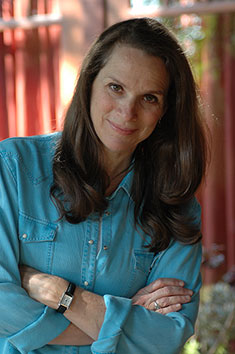Those who know him best see him in starkly contrasting ways.
"People are misled by his outer core," says his mentor, John C. Hobbins, professor of obstetrics at Yale University Medical School and a leader in the field of maternal-fetal medicine. "Inside the core, he's a warm, loyal guy who can be quite a team player."
"He's not a team player," counters Assali, another mentor. "He's a loner and not an easy person to get to know."
To residents, who have a hard time figuring out when he'll show up for rounds, he is a brilliant, if elusive, mystery man. To nurses, he's a softie, who sometimes crouches in the corner of a room to pray before performing a delicate operation. To colleagues, he is diffident, at times arrogant, but always available and much respected, though many worry that he is spreading himself too thin. To patients, he is "Dr. Amnio" or Dr. Tabsh, pronounced TAB-ISH. His first name, Khalil, means lover in Arabic, and he says he wishes people could pronounce it correctly, with the guttural ch sound used in Hebrew. But since most cannot, he goes by K, just K.
A workaholic, he doesn't smoke, drinks only on social occasions and takes vacations almost never. He would do without sleep, too, if he could, although he usually sleeps from 10 p.m. until 2 a.m., at which point he rises without an alarm clock and catches up on medical journal reading at his Pacific Palisades home. His wife complains that he's so compulsive about documenting everything in patients' charts that he often gets home at 5 a.m., only to rush out the door two hours later.
The last movie he saw, "The Godfather," was in 1973. Reading novels, he says, is a waste of time because he "lacks the imagination" to appreciate them. The joke circulating around the medical school is how he and his wife, anesthesiologist Suha Murad, whom he met in medical school in Beirut, managed to produce four children, given his obsessive work habits.
Tabsh, son of a steel importer, was born in Lebanon and is a citizen of Saudi Arabia. But he says he plans to become an American citizen one day. He was born a Muslim, attended Protestant schools in Beirut and sends his children to Catholic school in Brentwood. He says he believes all religions teach the same thing: Do no harm.
Educated at American University in Beirut, where he earned his bachelor's degree and went to medical school, Tabsh left Lebanon in 1975, soon after the civil war broke out there, to attend Yale. Upon completing his residency in New Haven, he returned to Beirut--and lasted all of one week, finding it too unsafe to stay.
Although he still adheres to some patriarchal values of the Middle East, such as wanting his wife to be home with his children rather than working full time, he accepts a different reality. The couple's conflicting work schedules preclude their spending much time together (two nannies take care of their children), but his wife says they at least talk on the telephone every night.
"The American way of communicating, we don't have," she adds. "K won't come and tell me anything, especially about work. We survive with an understanding. An American woman would have divorced him a long time ago."
THE DILEMMAS doctors like K Tabsh now face daily are inextricably linked to abortion. Prenatal diagnosis, after all, is the only type of medical diagnosis in which a possible result is intentional death. For that reason, abortion is a central issue. But Tabsh adamantly downplays its significance.
"The aim of prenatal diagnosis is not abortion," he says. "The aim is diagnosing malformations and abnormalities so patients can be prepared for a bad outcome, psychologically and physically."
Deciding what to do in the case of a "bad outcome" is never easy, though some cases are more clear-cut than others. Sure candidates for abortion are the most severe abnormalities, such as anencephaly, or the disastrous, inherited metabolic and chromosomal diseases such as Tay-Sachs disease and Trisomy 13 and 18, in which an extra chromosome produces severe retardation and babies who frequently don't live longer than one year.
But because prenatal screening cannot predict the severity of a defect such as Down's syndrome, many couples are thrown into a moral quagmire. Some children with Down's lead fairly normal, happy lives, and some suffer a lifetime of chronic disability, creating enormous hardship on their families. When faced with a diagnosis of Down's, 91% of couples in California elect abortion, according to the most recent data compiled by the state Department of Health Services.
Tabsh's position on abortion is clear: It is a patient's right to decide. But sometimes that rhetoric gives way to his feelings about the grim realities of second-trimester abortions. "When you do a D and E (dilation and elimination), it's a gross procedure," he says. "You grab the baby and pull the baby out. You're pulling arms and legs; the baby comes out in pieces. It's a sickening procedure."



